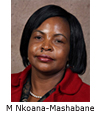 The world's major advanced and developing economies will converge in St Petersburg this week when Russia, as the Group of 20 (G20) Presidency for 2013, will convene the G20 Leaders' Summit from 5-6 September.
The world's major advanced and developing economies will converge in St Petersburg this week when Russia, as the Group of 20 (G20) Presidency for 2013, will convene the G20 Leaders' Summit from 5-6 September.
The G20 is made up of 19 country members and the European Union, which together represent around 90% of global GDP, 80% of global trade and two-thirds of the world's population. South Africa has been a member of the G20 since its inception in 1999.
The annual G20 Summits provide an opportunity for us to strengthen our cooperation on financial and economic issues to promote global economic stability and long-term sustainable and balanced growth.
For South Africa, our international economic cooperation in the context of the G20 remains a top priority. As President Jacob Zuma stated in his State of the Nation address, South Africa will use the G20 to promote and strengthen the interests of Africa and the South and bring to the G20 the key message that we must act together as the developing and developed world, to promote stronger and more effective and equal international partnerships for inclusive growth and development.
The G20 has the potential to advance much-needed global governance reforms and contribute to the international development agenda. In our capacity as one of the Co-chairs of the G20 Development Working Group (DWG), South Africa has championed the development agenda in the G20, especially the implementation of decisions aimed at limiting the impact of the global economic crisis on developed and developing countries. As a result, significant progress has been achieved in the DWG in implementing the G20 development agenda, focusing on initiatives and actions aimed at promoting growth and contributing to development in low-income countries in priority areas such as infrastructure, food security, human resource development and domestic resource mobilisation. President Jacob Zuma, who will lead the South African delegation to the G20 Summit, is expected to raise these important outcomes during the Summit.
South Africa thus believes that development is inextricably linked to growth. We believe in building a more equal and inclusive economy to bridge the socio-economic divide.
It therefore comes as no surprise that this year's G20 Summit will consider in-depth, measures aimed at boosting sustainable, inclusive and balanced global growth and the creation of decent jobs.
The G20 Leaders' focus during the forthcoming St Petersburg Summit on global growth and inclusive development comes at a time when the outlook on the world economy remains troubled. Despite signs of improvement in the world economy, growth prospects are expected to improve only marginally, from growth of 3.2 per cent in 2012 to 3.5 per cent in 2013. High levels of debt are inhibiting progress in many countries with unemployment remaining high and fuelling discontent. South Africa's economy has continued to grow but at a slower rate than projected. GDP growth reached 2.5 per cent in 2012 and grew to 3 per cent this year.
Economic competitiveness is an imperative. South Africa needs to invest in infrastructure, raise productivity and diversify its economy to create jobs and raise living standards. Improving the quality of education and training is an essential foundation of a more productive and inclusive growth path. Stronger links with Africa and other economies are needed. Future growth is also dependent on private sector investment in the economy.
As a member of the G20, we are therefore committed to intensifying our efforts to create a more conducive environment for sustainable development, including supporting infrastructure investment and job creation in order to improve living conditions worldwide and protect the most vulnerable. This, while being informed by South Africa's own "Vision 2013", as articulated in the National Development Plan.
South Africa will continue to cooperate with the other members of the G20 in finding solutions to structural unemployment, especially amongst the youth, as well as to promote job creation, entrepreneurship and investment, particularly in infrastructure. South Africa believes that promoting improved infrastructure such as better ports, railroads, roads, communications and electricity supplies are key drivers for increasing trade and economic growth.
Moreover, South Africa will continue to call on the G20 to show international leadership in helping to achieve progress in multilateral institutions with regard to reforming the United Nations (UN) system and International Financial Institutions in order to ensure a stronger voice and representation for developing countries, especially African countries. Despite the growing agenda of the G20, it should by no means be seen as a substitute for the UN system but should support and contribute meaningfully to the work of the UN, in those areas where this is appropriate.
Since its inception, the G20 has evolved into an influential forum for international cooperation in addressing pressing economic and financial challenges. So much so that G20 Leaders have designated the Group as the premier forum for their international economic coordination. With South Africa's priorities clearly defined, that is, to promote our development objectives, as complemented by those of Africa and of the South, in the context of the weakened and sluggish global economy and the need to ensure collective coordination of macroeconomic policies to promote growth, stability and employment, we continue to leverage our seat at the table as we prepare for the forthcoming G20 Summit in St Petersburg.
Ms Maite Nkoana-Mashabane is the Minister of International Relations and Cooperation (DIRCO)




